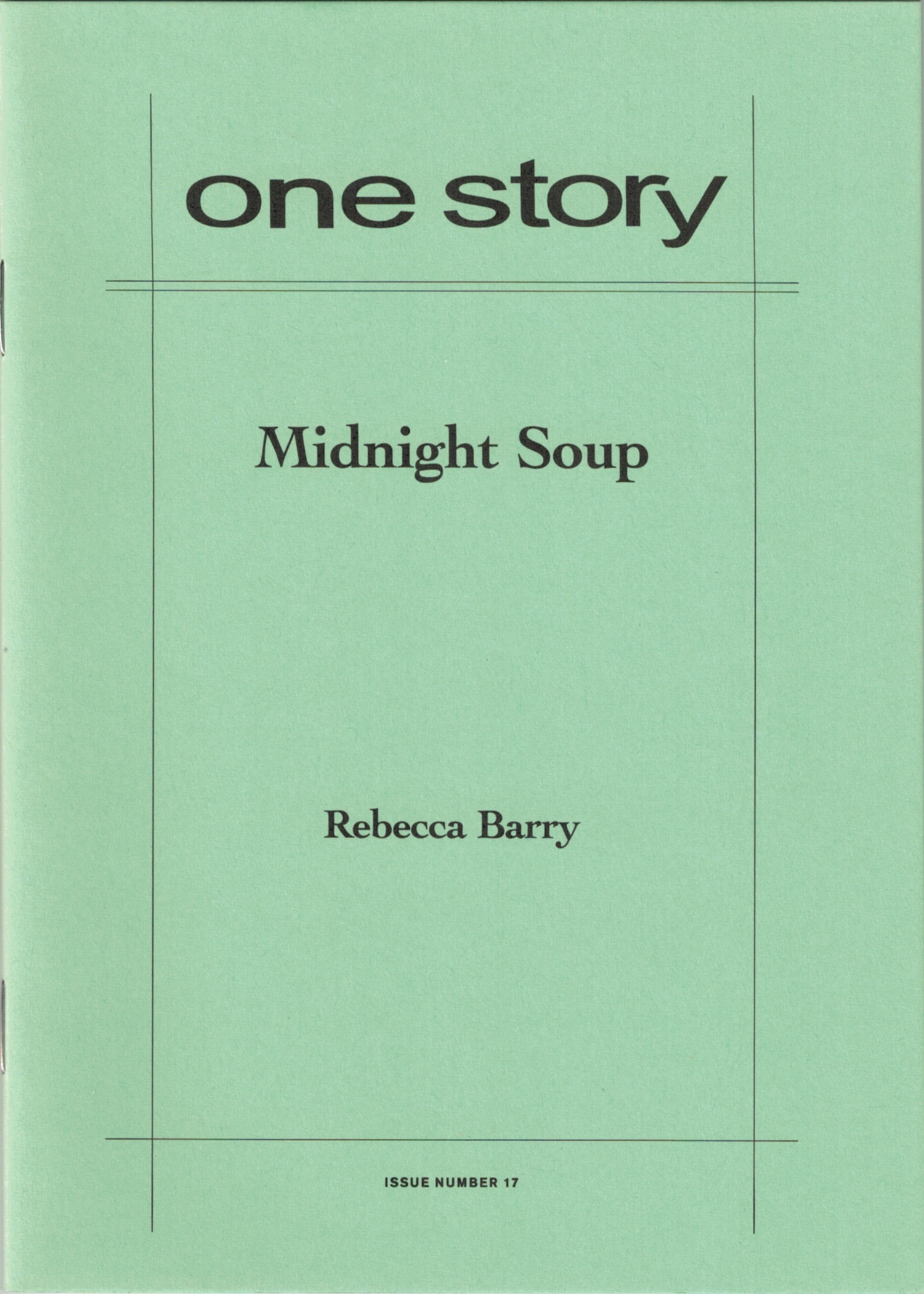
Midnight Soup
$2.50
Sold out
Excerpt
Madeleine Harris appeared out of nowhere in the late fall, when the sky was damp and gray and depression came drifting in for the winter. She just showed up at Lucy’s Tavern one night, a medium-sized woman with big feet and a perfect throw. The first time Bill Wilcox saw her, she beat Hank Stevens three times in a row at darts. Bill watched this with interest, partly because Madeleine was good looking, and partly because Hank owned the diner where Bill made soup and baked pies and he liked to see him lose.
“She has a good arm,” said Hank, sitting down next to Bill after the third game. “I haven’t seen that on a woman since that lesbo mail carrier, Fat Betty.”
“I haven’t seen that on a man since the last time your mother was in town,” said Bill, since Fat Betty was his friend and she was a meter maid, not a mail carrier.
Rebecca Barry
Rebecca Barry is an author living in upstate New York. Her first book, Later, at the Bar, was a New York Times Editor’s Choice, a New York Times Notable Book, a Barnes & Noble Discovery pick and was short-listed for The Story Prize. Her nonfiction has appeared in numerous publications, including The New York Times Magazine, The Washington Post Magazine, Seventeen, Real Simple, Details, Hallmark, and The Best American Travel Writing 2003. Her fiction has appeared in Ploughshares, Tin House, Ecotone, The Mid-American Review, and Best New American Voices 2005. She is currently working on a novel and writing a blog called The Main Street Diaries: http://mainstreetdiaries.blogspot.com.
Q&A by Hannah Tinti
- HT: Where did the idea for this story come from?
- RB: The idea came from a man I used to drink with when I was living in upstate New York. He was a wonderful cook and also had a fantastically foul mouth that I couldn’t even try to imitate. He worked in the restaurant next to the bar I used to go to and one night everyone was teasing him about breaking into the restaurant the night before and making the best soup he’d ever made. When I asked him about it later he said he’d been so drunk he couldn’t remember how he did it. At the time I thought that was such a perfect tragedy—that our best work is done and gone when we aren’t even looking and then it’s lost—so I sat down and wrote a story about it. It turns out, though, that this man does this all the time.
- HT: What was the most challenging aspect of writing this story?
- RB: The end. For the longest time I couldn’t get the end right. I tried the soup being horrible, I tried it with Bill and Madeleine getting together, I tried tacking endings to other stories I’d written on to it. I even showed one version to the guy who inspired it, to see if he had any ideas. He said, “I don’t mind the end, but I don’t know about that part where he’s licking and tasting his own butt or whatever was going on there.”
- HT: Have you ever worked in a bar?
- RB: No. But I’ve spent a lot of time in them.
- HT: What is your favorite part of this story?
- RB: I think my favorite part is where Fat Betty starts to dance. I love that moment and that character—she and Stewart Levine are two of my favorites. They keep showing up in other stories.
- HT: How long did it take you to complete this story?
- RB: Three months for the first version. Three years to get to this version.
- HT: What is the best bit of advice about writing you have ever received?
- RB: It’s just a practice. Every day you’re just practicing for your novel or collection, so don’t freak out if it isn’t Grace Paley.
- HT: What are you working on now?
- RB: A novella and a collection of short stories.